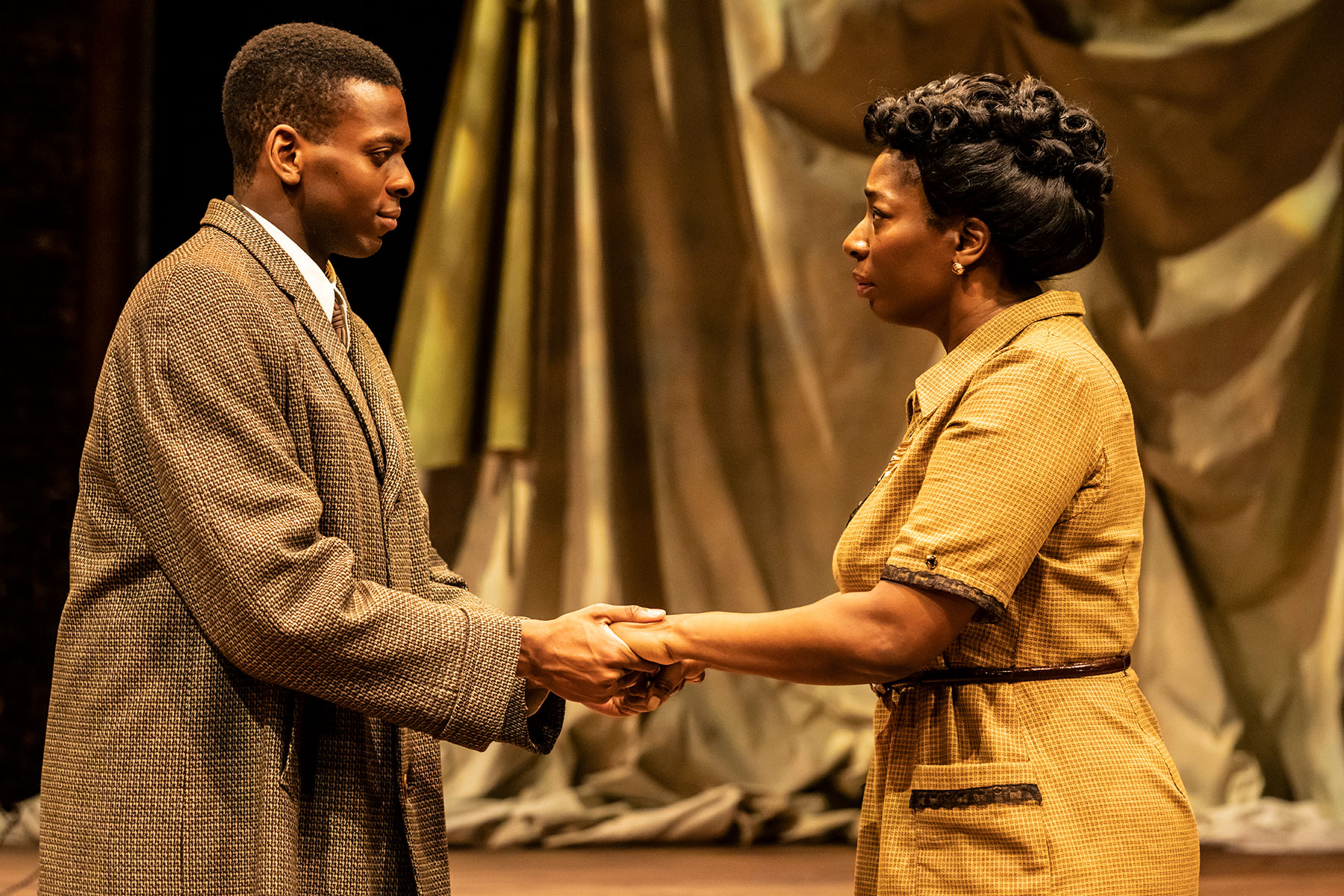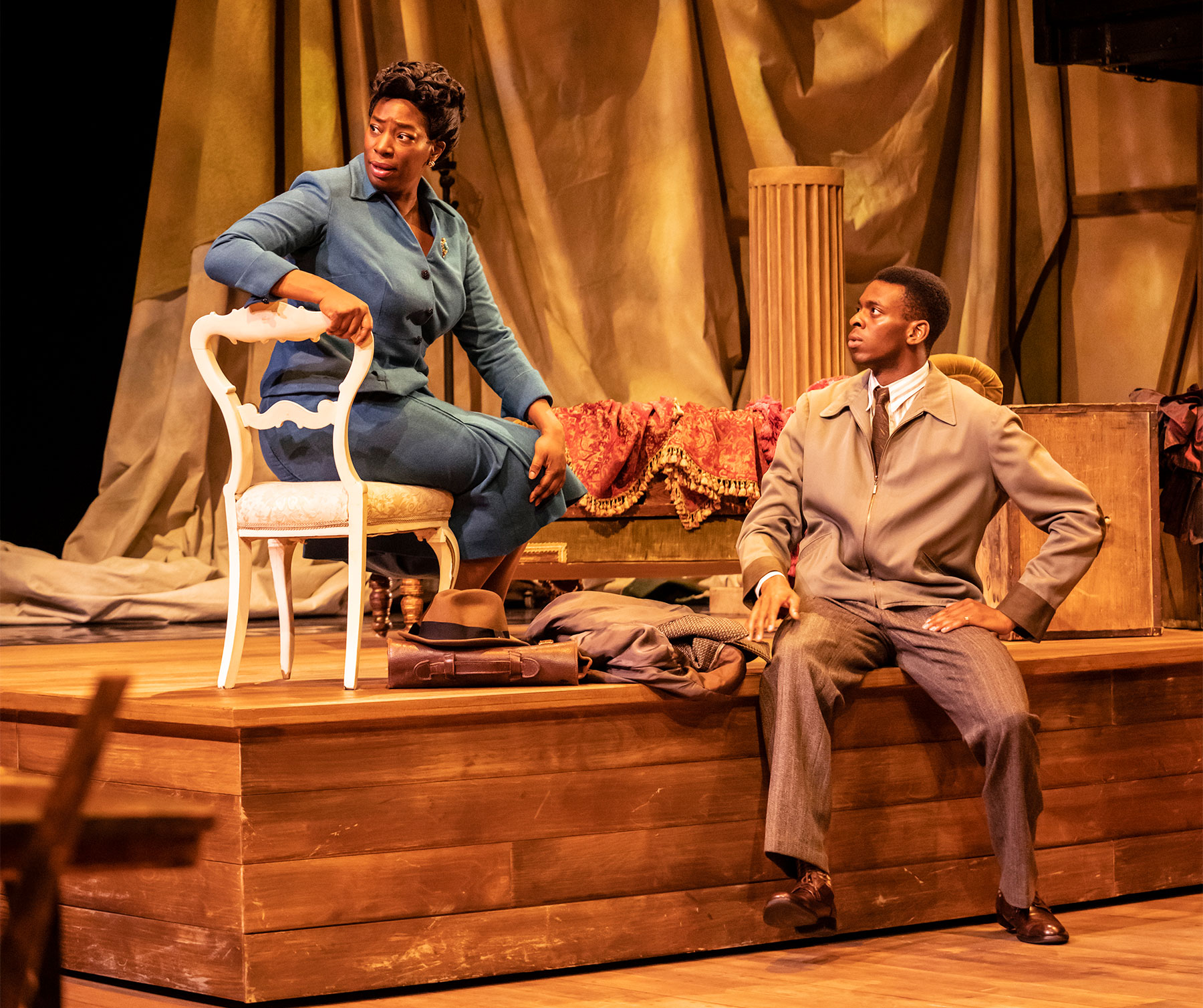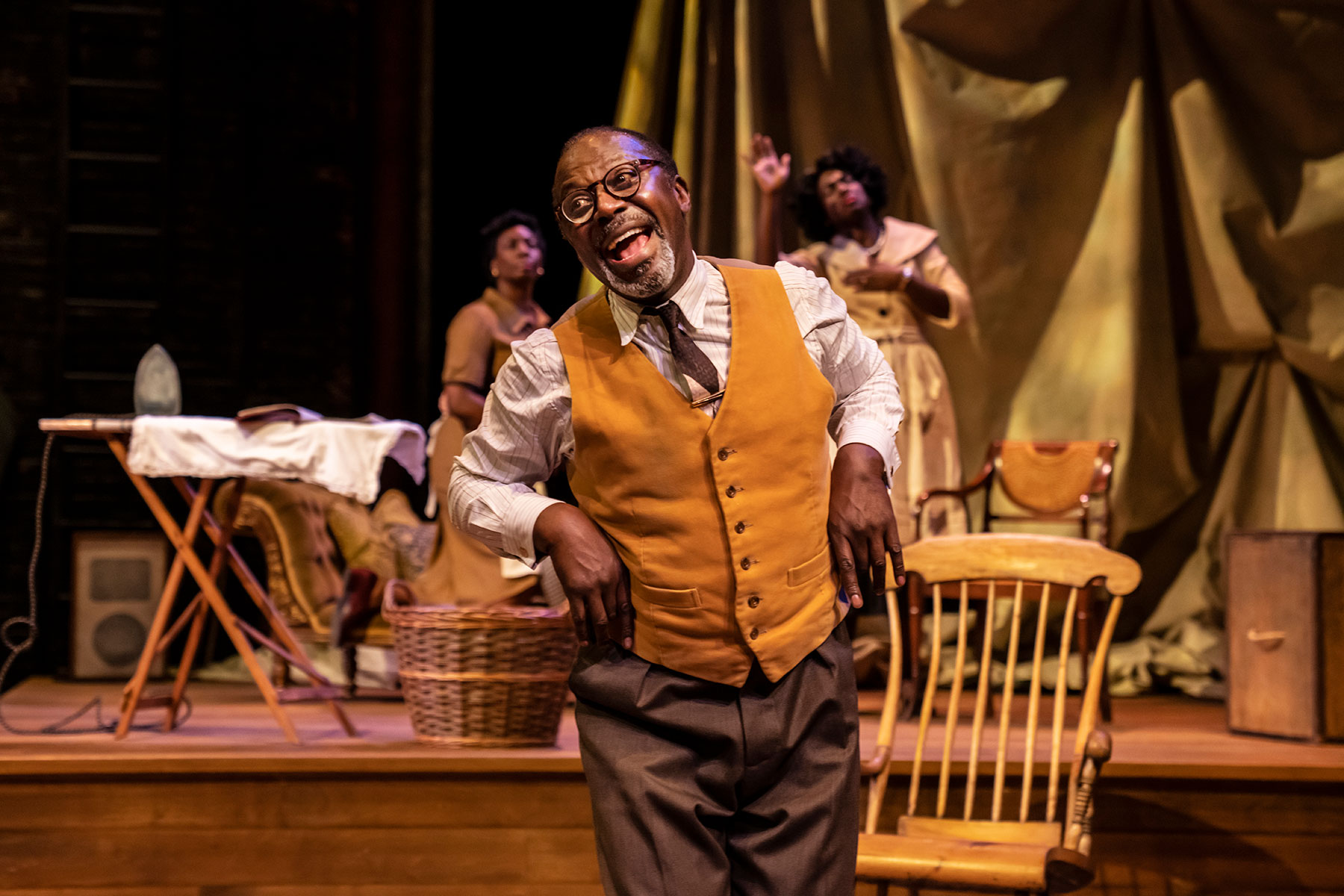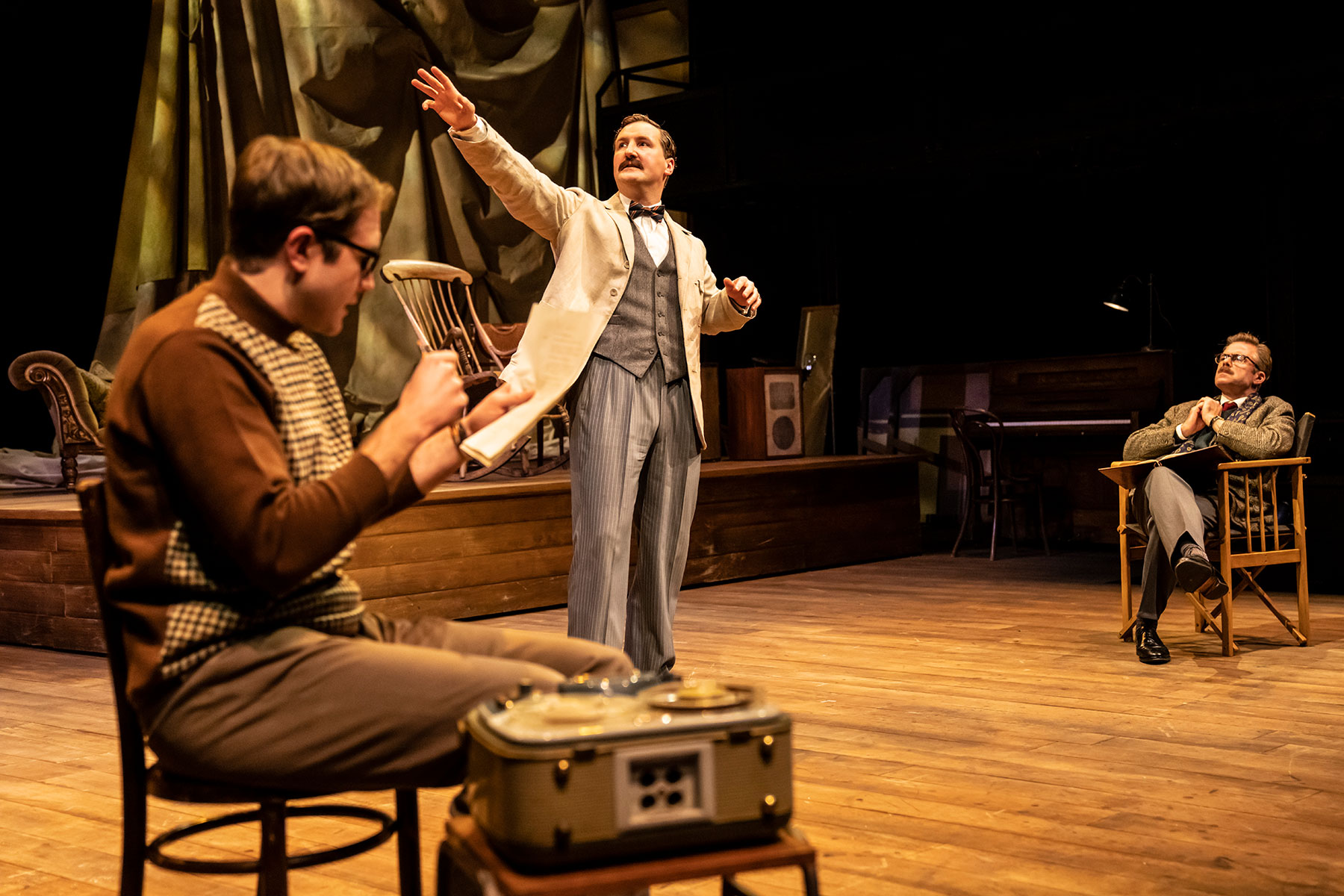
A dimly lit stage featuring Rajha Shakiry’s shabby backstage setting is the opening for this fast-paced satire set in the theatre world. Ominous intro music switches to an upbeat vaudeville-type tune hinting at the mocking nature of what is to come.
Sometimes satire is clever without being funny, but the laughs come thick and fast with TROUBLE IN MIND. I had tears in my eyes more than once. Trouble in Mind manages to be hilarious alongside a razor-sharp script that shows great insight into the dynamics of race and power.
The humorous script keeps us laughing but black theatergoers will recognise the wearying effect of having to constantly ‘perform’ in white spaces.
A troupe of mainly black actors is rehearsing a new play about the black experience. It is described as an anti-racism play by a self-absorbed white director and is written by an unseen white writer who represents the main black characters as racist caricatures. The black actors are acutely aware of the poor portrayal of black folk in the play but through a desire to work, they put up with it. Though Willetta, played by Tanya Moodie, eventually decides to take a stand for the first time in her career.

A few things stood out about the play. The audience is watching a play within a play but the black actors are also playing a dual role even within the fictional play. They have to put on double performances; firstly, by creating a palatable version of blackness for the white producer, careful not to challenge, careful to laugh when required; and secondly when playing the deeply offensive roles in the so-called anti-lynching play.
Wiletta and her black colleagues are aware of what they need to do to keep their jobs. As Wiletta says early on, “ white folks can’t stand unhappy negros”. The grandiose airs and affectations of the black actors have all the more startling when you realise they are limited to playing maids, feckless fathers, runaway sons. Calling out the pretense, Wiletta says, “It’s just a business. Colored folks ain’t in no theater.”

A dynamic production gives the play a modern, urgent feel. Moodie’s Wiletta takes us on a credible journey as she realises she can no longer game the system by pretending to relate to these racist scripts. Cyril Nri gives a memorable performance as the pragmatic Sheldon Forester who is happy to do whatever as long as he gets his check. In an episode, where he describes witnessing a real lynching, we understand just how far he has come in life. The humorous script keeps us laughing but black theatergoers will recognise the wearying effect of having to constantly ‘perform’ in white spaces.
The play raises interesting questions about power, race, and the truth of representation. For example, we’ve been spoilt in recent years by black written plays, film, etc. but we still have to question the agenda behind representations of black folks onscreen and on stage. Do non-black producers, directors, channels facilitate art that shows the humanity of black people?

TROUBLE IN MIND is just as relevant now in a post-George Floyd 2021 as it was in 1955. It would have been hugely provocative for a 1950’s audience, but it also reflects the socio-political climate of the civil rights era.
Wiletta is tearing up the agreed invisible contract to make a stand for truth. I couldn’t help but think of Zora Neale Hurston’s quote: “If you‘re silent about your pain, they will kill you and say that you enjoyed it”.
It’s a travesty this play has remained hidden from mainstream sight for so long, but I’d say it’s a new classic.



























